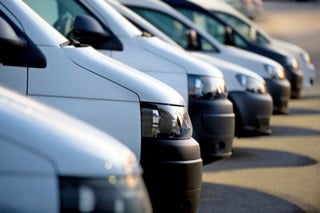Bibby Distribution has reduced its net carbon emissions by 10% over the last five years through safe driving, fleet investment and energy efficient warehouses.
The saving comes from a combination of enhanced driver training, low-emission vehicles, fewer empty trailer journeys, and reduced energy lighting and electric materials handling equipment (MHE).
These factors reduced the company’s carbon footprint in 2018 by a tenth, compared to the figures reported in 2014.
Andrew Mawson, Bibby Distribution’s head of safety, health, environment and quality (SHEQ), said: “We have looked across the board at all the different ways we can reduce our environmental impact and the latest results show this work is paying off.
“Our drivers are playing a significant role through improved vehicle operation, our fleet is the most efficient we’ve ever had, and we’ve reduced empty runs by 40 per cent each month.
“The focus we’ve given to improving our warehousing practices has also delivered phenomenal results.
“In our line of work it isn’t easy to reduce our carbon footprint, but we’re determined to do so because it’s better for the environment, and also improves the safety of our operations.”
Bibby Distribution’s approach to carbon reduction comes from its ‘Road to Zero’ aims, which aims to create zero harm, zero waste and zero environmental impact from its work.
The introduction of specific driving programmes has helped reduce inefficient practices such as engine idling or harsh braking – cutting fleet carbon emissions, while also reducing Bibby Distribution’s accident rate by 14.7% during the last year.
The training has earned praise for Bibby Distribution’s drivers as the best in the industry at Microlise’s Driver of the Year Awards earlier this year.
Mark Field picked up the overall Driver of the Year and also won the ‘Short Distance’ category, John Hales was awarded with a Lifetime Achievement accolade and Dale Coppin was runner-up in the HGV Hero category.

















Login to comment
Comments
No comments have been made yet.